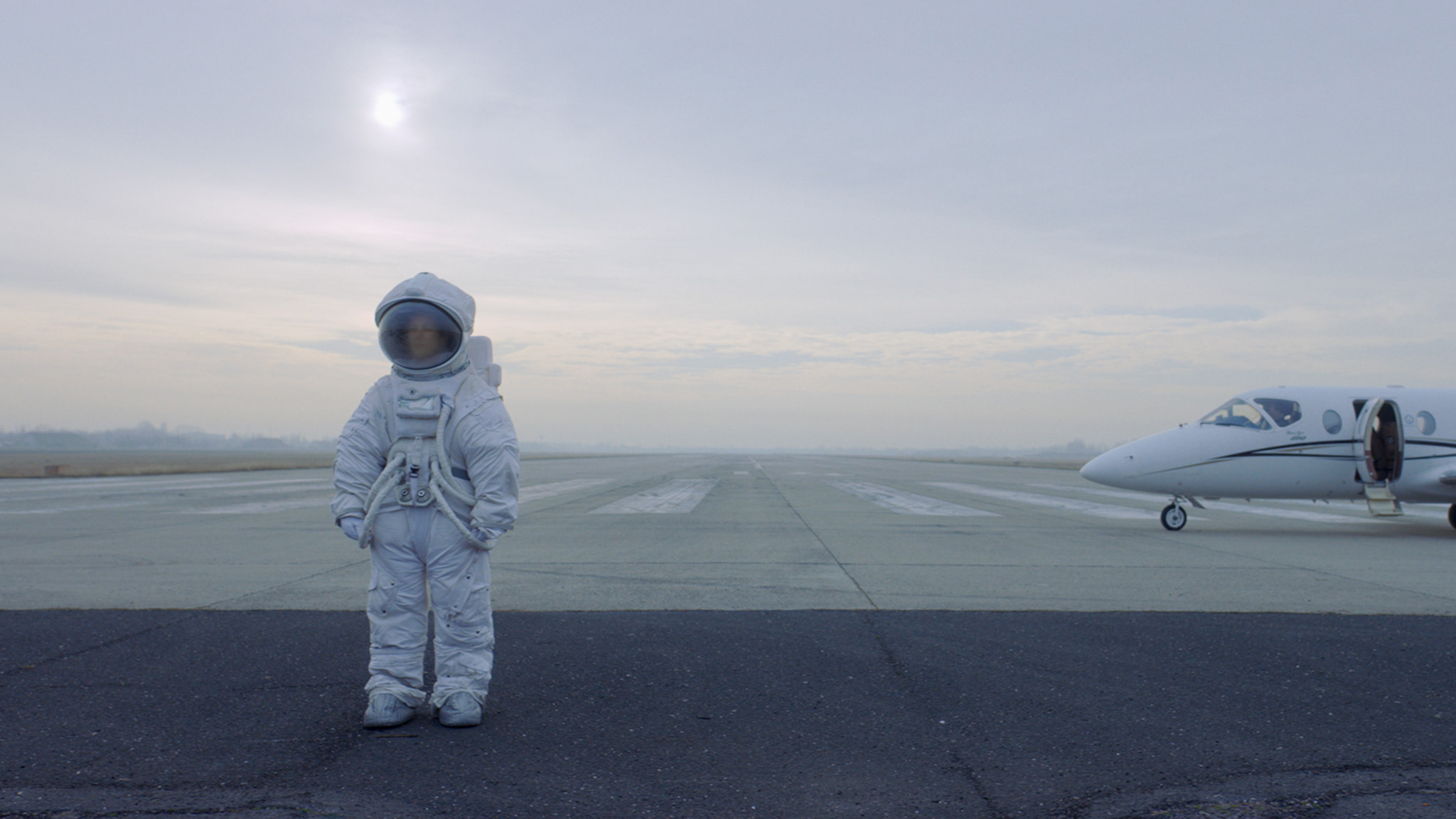
Dir: Ágnes Kocsis | Cast: Lana Baric, Daan Stuyven | 153′ Drama, Hungary
Ágnes Kocsis is now a forbidable figure in European arthouse film. Her 2006 debut Fresh Air won a FIPRESCI prize and her second Pol Adrienn (2010) went on to win awards across the board. Eden is her formally austere and thematically rich character driven third feature that explores the main preoccupations of our modern world: loneliness and immune hyper-sensitivity.
Éva suffers from both. And she’s allergic to just about everything, so living in a bubble becomes a fact of life to avoid toxic shock, breathing difficulties and possibly even death. To venture outside her starkly decorated high-rise apartment in Budapest she must don a space suit. Éva’s days are spent in a local clinic with doctors experimenting on her, and these scenes are gruelling and quite upsetting to watch. Mate Toth Widemon’s luminous camerawork also captures the silent stillness of the desert where Éva undergoes light therapy in an isolated glass igloo.
Ágnes Kocsis sets out to explore the complexities of mind over matter and the ambiguities of contemporary living, suspended between sustainability and emptiness. Essentially a three hander – with support from a range of convincing minor characters – the plot revolves around Eva, her brother and András. The illness started after she collapsed on a bus, and now middle-aged Eva is dangerously ill, her immune system in total collapse. Her sole contact with the world is her brother Gyuri, who brings her food and keeps her company. But he has his own issues. This situation changes when András enters her life – a specialised psychiatrist, he will represent her in a court case about whether her condition is caused by pollution, or whether her mental state is so fragile that she herself is the cause of her allergies. Is she sick, or is the world making her ill? Or is her loneliness the root cause of her malaise.
Eden often echoes the bracing quality and otherworldliness of Tarkovsky, Lucile Hadzihalilovic and Bela Tarr (who was also involved in the film’s production). And although it is often difficult to engage with and requires a certain perseverance with its obtuse characters and hard-edged, blue-tinged interiors, what gradually dawns through Kocsis’ textured characterisation is that Andras and Eva are forming a meaningful bond that could potentially be the start of love.
Lana Balic plays Eva as a poignantly troubled soul who is suffering, lonely and alienated. She collects baby turtles and her pastime of twisting bits of wire to make angular sculptures is one that inevitably leads to further pain, and even draws blood from her delicate fingers. Baric has the soulful eyes and tortured, pointed face of a medieval martyr, or even a saint from a painting by Carlo Crivelli. Yet she imbues Eva with quiet dignity, and we feel for her. This is a film full of anguish: apart from the awful scenes in the clinic, birds often collide into the glass windows of Eva’s home, dropping to certain death below. But there are also beautiful light-filled images as spring arrives in Budapest to soften the sorrowful scenario.
The relationship between Éva and András becomes more intimate, and her condition seems to improve. He encourages her neighbour upstairs to play his piano: Chopin of course. But the romantic tones of Lucio Dalla’s ‘Il Cielo’ are what really sets the night on fire in this mournful piece, and the ballad plays out through the bittersweet, heart-breaking finale. The final scene is one of the most extraordinary you’ll see this year. And watch out for the post credit ‘sting’. MT
ROTTERDAM INTERNATIONAL FILM FESTIVAL 2020